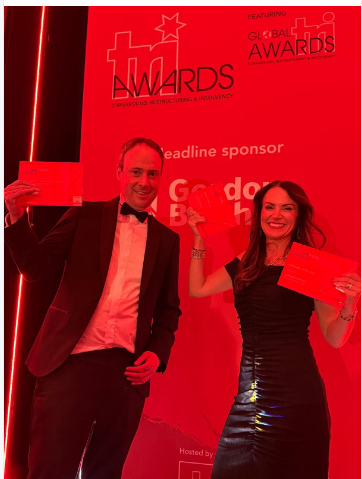
How to submit successful HMRC complaints
The HMRC complaints process can yield effective results, provided they are on the correct basis.
In my time working at PKF Francis Clark, I have observed a number of complaints against HMRC about the handling of tax investigations. Usually where the HMRC complaints process is not followed, and communications are not directed to the correct person.
The problem with this is that it renders ineffective complaints, and HMRC will do their utmost to ignore it. This is a waste of time and potentially incurs costs to the taxpayer when the complaint is either not upheld or dealt with by HMRC.
For the best chance of success with a complaint against HMRC, you need to consider the HMRC complaints handling guidance and follow the HMRC complaints process.
In a nutshell, HMRC complaints operates on the following tiered system, which has four steps of increasing gravity:
1) Tier one
This is your initial complaint and will be HMRC’s first point at resolution. You should address your complaint to the office, or officer, dealing with the matter. Head the email or letter with ‘tier one complaint’ so there can be no doubt about the nature of your correspondence. With avoidance cases, I would go for either the Technical Lead or Channel Lead as a tier one target. HMRC’s specialist complaints handling team will then receive the complaint directly from that business unit or channel.
2) Tier two
If you do not achieve the desired outcome at tier one, and the client is still dissatisfied, then you can ask HMRC to review the matter once more. This should be a fresh review by a separate complaints handler from whoever responded to the tier one complaint. This way HMRC undertakes a completely fresh review.
Tier two complaints are very serious as the next step is recourse to the Adjudicator. The head of HMRC becomes aware of a complaint when there is a referral to the Adjudicator. I would direct your complaint to the person named within the footer of the HMRC letter. For avoidance cases this will be the Director of Counter-Avoidance.
3) Independent Adjudicator
The adjudicator is completely independent of HMRC but has an office within HMRC as part of their service level agreement.
4) Ombudsman
Complaints to the Parliamentary Ombudsman should be made through the client’s local MP in a letter for the attention of the Parliamentary and Health Service Ombudsman.
Avoid emotive language and keep it professional
Examples of complaints I have seen often include what an old inspector used to term “too much red meat”. I.e., they are very emotive and personally directed at the perceived ineptitude of the officer concerned. Complaints of this nature cannot help and might result in HMRC raising their defences.
To achieve the best chance of a successful outcome, I recommend taking out any of the fire and fury. No matter how satisfying it might be to let the officer know the strength of feeling towards them. Rise above any perceived goading or bullying behaviour from HMRC.
Keep the complaint on a professional level, run through the facts (step by step), reference HMRC guidance if possible, and respectfully point out the incorrect treatment or failure to adhere to the guidelines laid down. Additionally, make sure you press home the unnecessary distress caused to the client.
Point out maladministration
When resolving a complaint, HMRC should consider compensation. Not only for distress – likely to be a small sum, so manage client expectations – but also for additional costs in relation to the fees incurred for extra work. If the complaint relates to basic maladministration, or inappropriate behaviour, you could also push for a write off of some, or all, of the tax, or to close an ongoing tax enquiry.
Maladministration for enquiry cases comprises failures in handling matters correctly, by reference to the guidance within the compliance handbook or enquiry manual. It also covers scenarios where you can demonstrate that officers have not acted in a fair and reasonable manner and failed to adhere to the taxpayers’ charter. The main point of the charter is a reliance on mutual trust. Therefore, if you feel HMRC have acted in a way that demonstrates a lack of trust on their part, then state it, loud and clear.
Subject access requests (SAR)
Under the EU GDPR/UK Data Protection Act, taxpayers have an entitlement to access the information HMRC holds on them. You can do this via SAR, which you can include with your letter or email of complaint.
These are very useful tools when mounting a complaint. You can ask HMRC directly for their record of actions on an enquiry case, or simply for a copy of the self-assessment (SA) notes for a client. HMRC will resist, but eventually should relent and supply you with a copy of their actions.
In a recent case, the entries within SA notes demonstrated that the client had sent in a letter when HMRC had repeatedly denied receipt. This led to a six-figure repayment. The main point here is to consider SAR in tandem with your complaint. If nothing else, it will raise the profile and urgency of the complaint within the complaints team handling it.
Conclusion
If there is no avenue to appeal a decision from HMRC, then complain in the first instance and follow the procedure. If you or the client are unhappy with HMRC actions, then complain. Also, if you feel there is something HMRC is holding back, or they have acted outside of their guidance, complain and consider SAR in tandem with the complaint.
Our investigations team has a lot of experience in mounting complaints. Engage with us at an early opportunity, and together we can look to make sure the best chances of a positive outcome.
Written by












